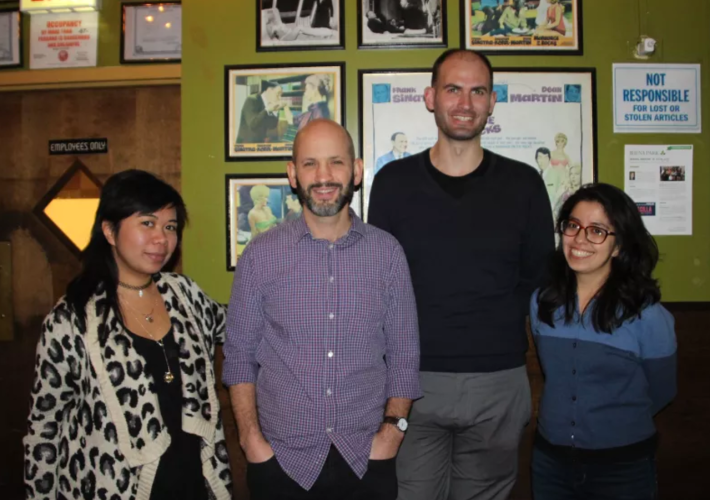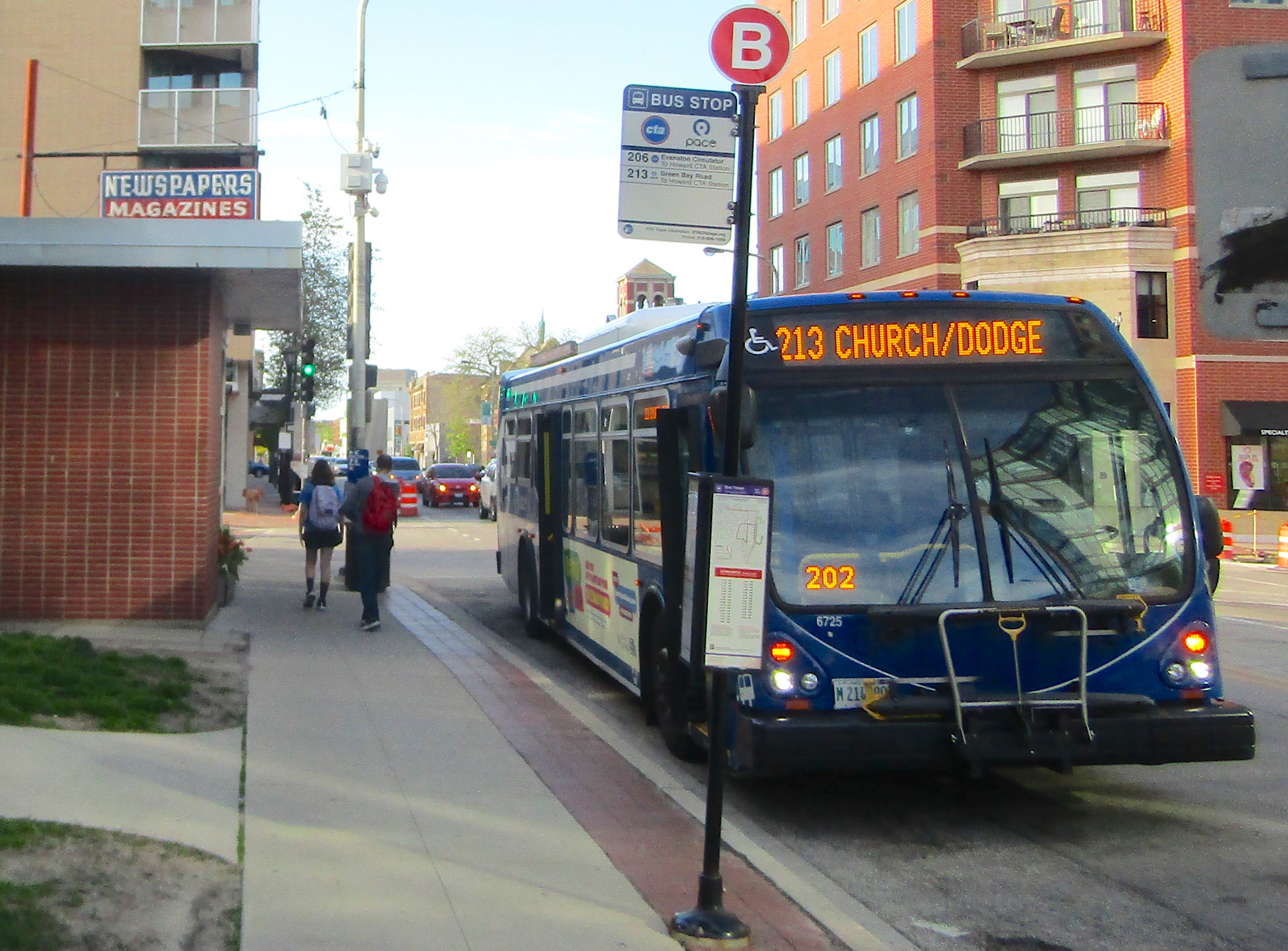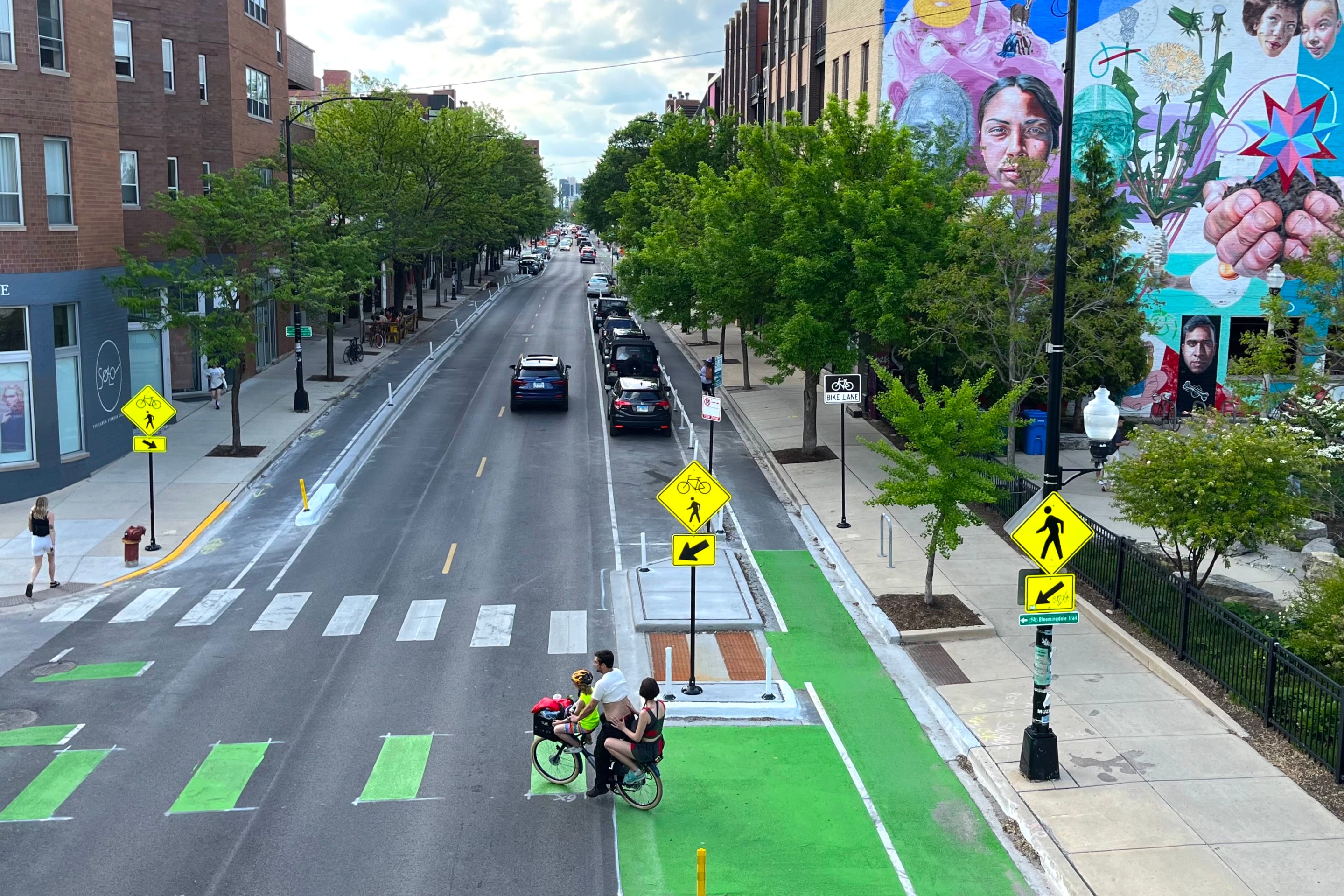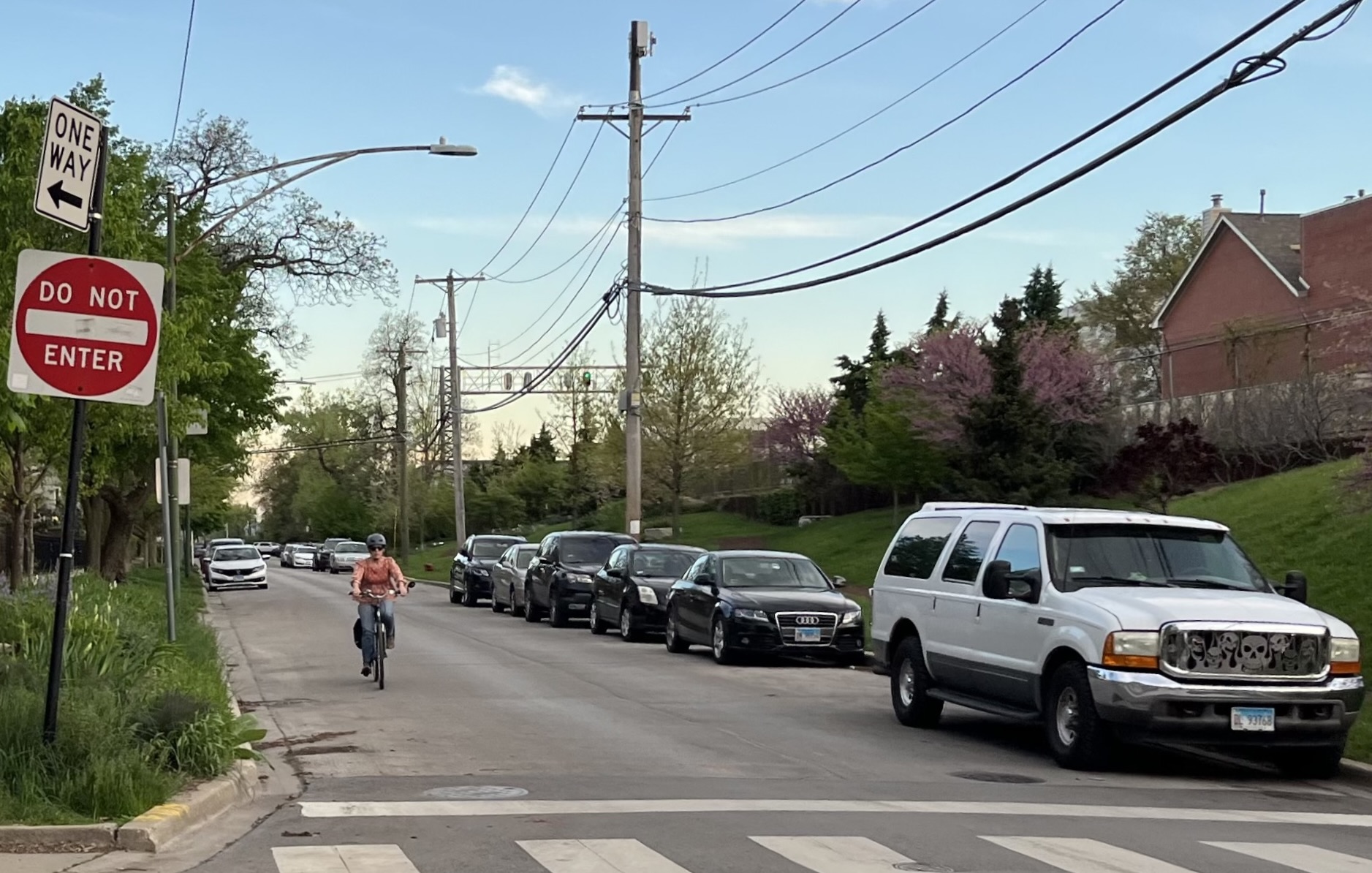Let’s Stop Booking Majority-White Panels on Citywide Transportation Issues
7:07 PM CDT on August 18, 2017

The organizers of The Untokening, a mobility justice conference held in Atlanta last year. We had trouble finding a photo of a diverse panel discussion of transportation issues in Chicago. Photo: Photo: Argenis Apolinario
Note: I placed my portion of this post at the beginning to outline the events that led to this discussion of the Bike Talk panel. But be sure to check out Streetsblog Chicago reporter Lynda Lopez’s thoughts on the topic in the second half of the article, and feel free to just skip ahead to Lynda’s section if you’re already familiar with the subject – I think her portion is more essential than mine, and it also addresses two upcoming forums on transit-oriented development . -JG
“Nothing about me without me,” a transportation of advocate of color posted on social media last year when I made the mistake of writing about an urban planning issue in his South Side community based on data and interviews with leaders of civic organizations, but not neighborhood residents. It was good advice: The follow-up article, which featured several community members talking about their specific concerns with the project, was a stronger piece that better reflected the wants and needs of the people who actually live in the area.
Recently I was involved in another situation where all people relevant to an urban planning discussion weren't represented. This spring the Chicago Architecture Foundation graciously invited me to join a panel called Bike Talk: Chicago’s Cycling Future, which takes place next Monday, August 21, at 6 p.m. at Revolution Brewing, 2323 North Milwaukee in Logan Square. A wide-ranging conversation was planned, including issues like equitable distribution of bike resources, efforts to promote biking in Black and Brown communities, and how new bike infrastructure like the popular elevated greenway The 606 can raise concerns about rising property values and housing costs in gentrifying neighborhoods.
While I was flattered to be invited, and the other two panelists were distinguished, there were no people of color in the lineup, which I felt was problematic, especially because there were plans to discuss topics specific to African-American and Latino neighborhoods. “I would strongly encourage you to try to assemble a program of speakers that reasonably reflects local demographics in terms of race and gender,” I wrote the organizers at the time, and I sent them contact info info for several excellent candidates from two transportation advocacy groups led by Black and Latino Chicagoans.
The CAF staffers, who told me they were aware of the issue and had already tried hard to make the panel more diverse, said they were glad to get the leads, and they reached out to these organizations. After getting no response from one group, they contacted the leader of the other, a person of color who was unavailable, but recommended a fourth panelist, whom the foundation booked.
When I heard that the final four-person line-up still didn’t include any people of color, I considered backing out of the event. But that seemed a little rude after the CAF made the effort to follow up on the leads I gave them.
Thankfully, as soon as I tweeted out the event, Streetsblog Chicago writer Lynda Lopez, who's Mexican-American, noticed the problem. She tactfully pointed out what I already knew to be true: In a city where more than two-thirds of residents are African-American, Latino, or Asian-American, it doesn't make sense to discuss citywide matters, especially equity issues, via a panel that contains no people of color.
Seems like a great panel. Would like to see more people of color included in this conversation though, especially as we discuss "the future"
— Lynda Lopez (@Lyndab08) August 11, 2017
For sure bc not sure how the convo is holistic without broad representation. Especially as we seek to redefine who bikes.
— Lynda Lopez (@Lyndab08) August 11, 2017
That’s when I realized what I should have done when I heard the four-person panel would have no Black or Latino participants: offered my slot to a colleague of color. I immediately invited Lynda to take my place, she accepted, and the architecture foundation was very receptive to our proposed line-up change, which I appreciate.
While people of color are still underrepresented on the Bike Talk panel (although three of the four participants will be women, which is pretty cool), having a wider range of perspectives will add value to the program. Lynda is an especially good person to be involved in discussions of bicycle equity because she’s not only a regular bike commuter, but also does youth outreach for the Brighton Park Neighborhood Council and volunteers as an affordable housing advocate with Grassroots Illinois Action. As an added bonus, I’ll be free to cover the event for a Streetsblog Chicago post.
Getting an appropriate breadth of voices on panels discussing transportation and urban planning issues isn’t always easy, because African-Americans, Latinos, and women are still underrepresented in these fields. But I’m grateful to Lynda for reminding me that, when it comes to creating spaces where people of color have input on issues that affect their lives, it’s no longer acceptable to say “We tried.” We have to make sure that historically disadvantaged groups get fair representation in panel discussions and other venues where policy is hashed out, even if it means going the extra mile.

Here are Lynda’s thoughts on the Bike Talk panel representation issue, as well as the lineups of upcoming transit-oriented development forums.
Late last week, I was browsing Twitter when I saw a tweet about the upcoming Chicago Architecture Foundation event “Bike Talk: Chicago’s Cycling Future.” As an avid cyclist, I was excited to see who would be speaking. I browsed the page and was disappointed to see it was an all-white panel, including my editor from Streetsblog Chicago, John Greenfield. While I am sure everyone on the panel had valuable points to share, I couldn’t believe that any conversation regarding the future of anything would exclude people of color. While I knew my words could easily be misconstrued, I tweeted my discontent about it. Soon thereafter, John messaged me about his initial reluctance to serve on an all-white panel and asked whether I would want to take his place on the panel.
I contemplated the situation. I didn’t want to be a token person of color on a panel that initially had inadvertently excluded people of color. But when I asked friends what I should do, they all said I should go for it. I decided to accept because I felt my presence could lend some perspectives on cycling that might otherwise not be considered, such as barriers to biking for people of color, or the intersection of gentrification and cycling.
Though I am now going to be speaking on the panel, this incident is still part of a troubling trend within conversations on transportation, housing, etc. Within the purview of urban planning topics, panels and conversations are too often all-white. As someone who loves discussing and learning about these issues, I can’t help but feel that they’re spaces not meant for me when I see no one reflective of my background. Exclusion perpetuates even more exclusion.
Shortly after noticing the CAF panel, I came across two upcoming events about transit-oriented development (dense, parking-lite development near train stations), one hosted by the Rogers Park Business Alliance and the other presented in Lincoln Square by the Greater Rockwell Organization and the Northcenter Neighborhood Association in cooperation with Northside Neighbors. I have closely been following the conversation around TOD because of the effect it’s had in spurring development in gentrifying neighborhoods, so I was excited to see what these events would be about.
However, as I scrolled through the moderator and panelist names, I realized that the vast majority of the nine participants were white males. I had first learned about TOD trend through interactions with people of color organizing against displacement. They would have plenty of valuable insights to add to any these conversations, but it appeared that they were simply not invited to the table.
I essentially got myself invited to one of the tables, the Bike Talk panel, but it shouldn’t take a backlash to make inclusion happen. Anyone wanting to have conversations around topics like cycling, affordable housing, transportation, etc, has to make the extra effort to include diverse voices. If you can't find anyone to sit on your panels who isn’t white, then you need to reevaluate what your year-round connections to communities of color look like and whether you and your organization are invested in holistic representation. If you are a white person, particularly a white male, invited to be on a panel, be critical if you do not see broad representation.
When communities of color are left out of the conversation, it perpetuates inequity. Despite good intentions, inequity begins with the exclusion of voices because decisions, ideas, and priorities are shaped without their input. We can no longer let that be the norm within urban planning and other fields that directly impact people’s lives.
Stay in touch
Sign up for our free newsletter
More from Streetsblog Chicago
Since COVID, Pace ridership has fared better on major corridors and in north, northwest suburbs than in south, west ‘burbs
The suburban bus system's top five busiest routes largely maintained their ridership rankings.
Due to incredible support from readers like you, we’ve surpassed our 2023-24 fundraising goal
Once again, the generosity of walk/bike/transit boosters is fueling our reporting and advocacy.
Which Metra corridor would become more bike-friendly and greener under a new plan? Ravenswood!
Thanks to plans to convert little-used parking spaces, the avenue is slated to get a new bike lane, and the Winnslie Parkway path and garden will be extended south.



